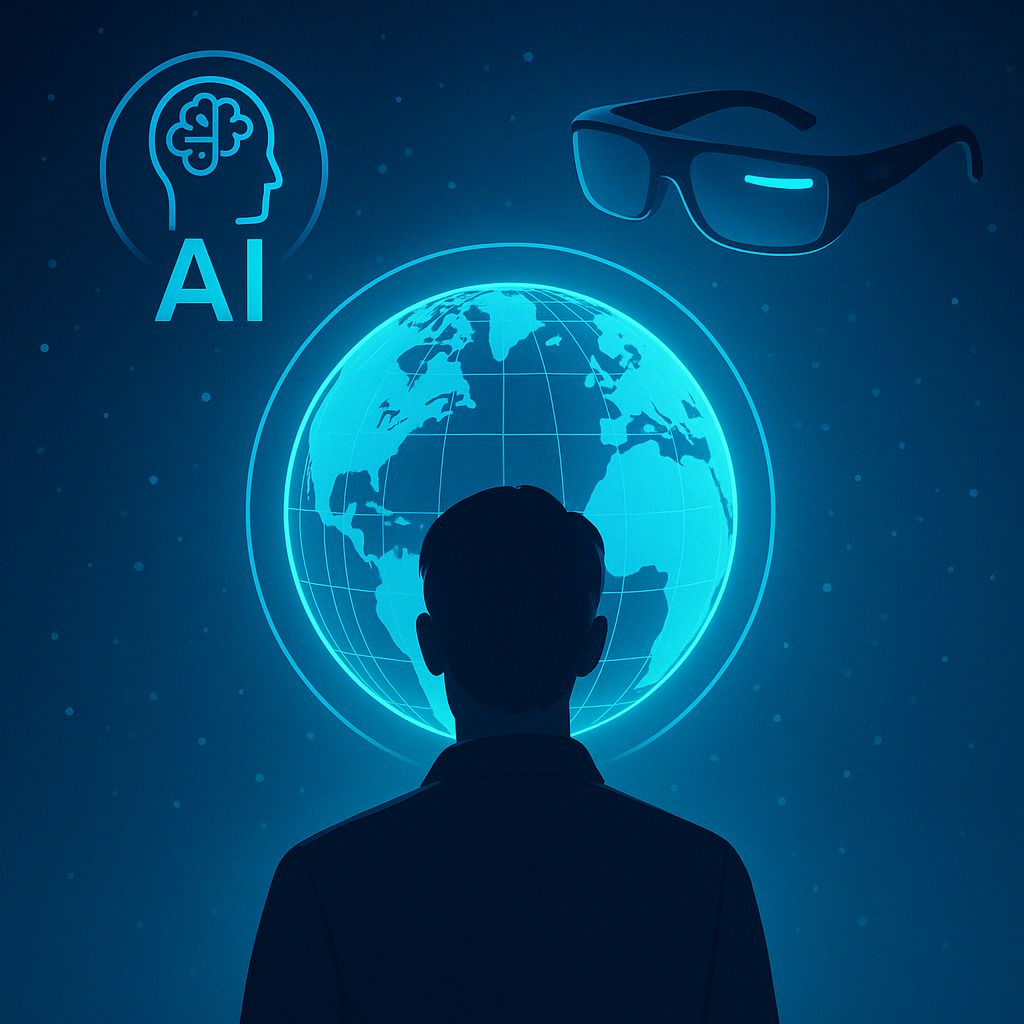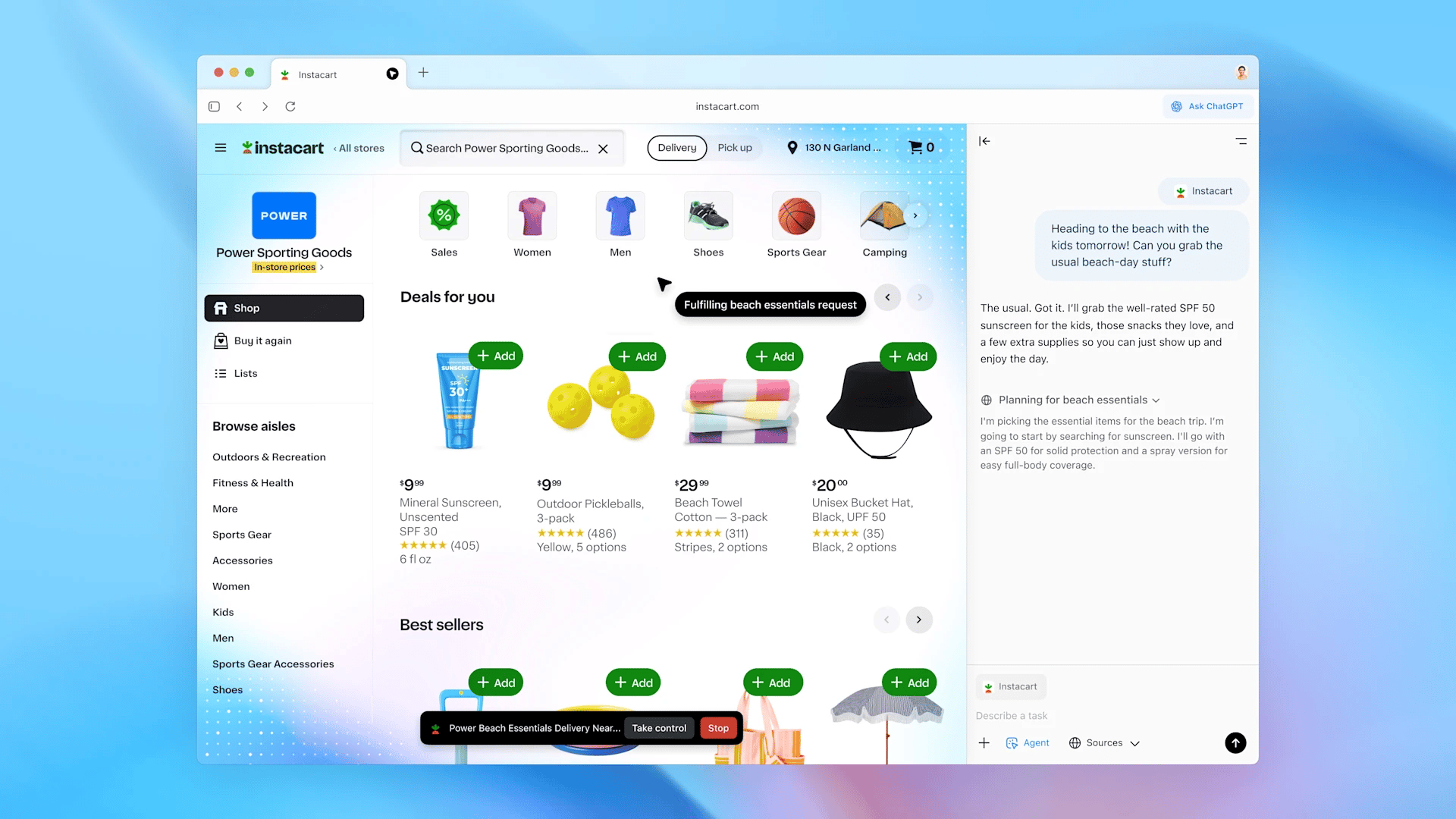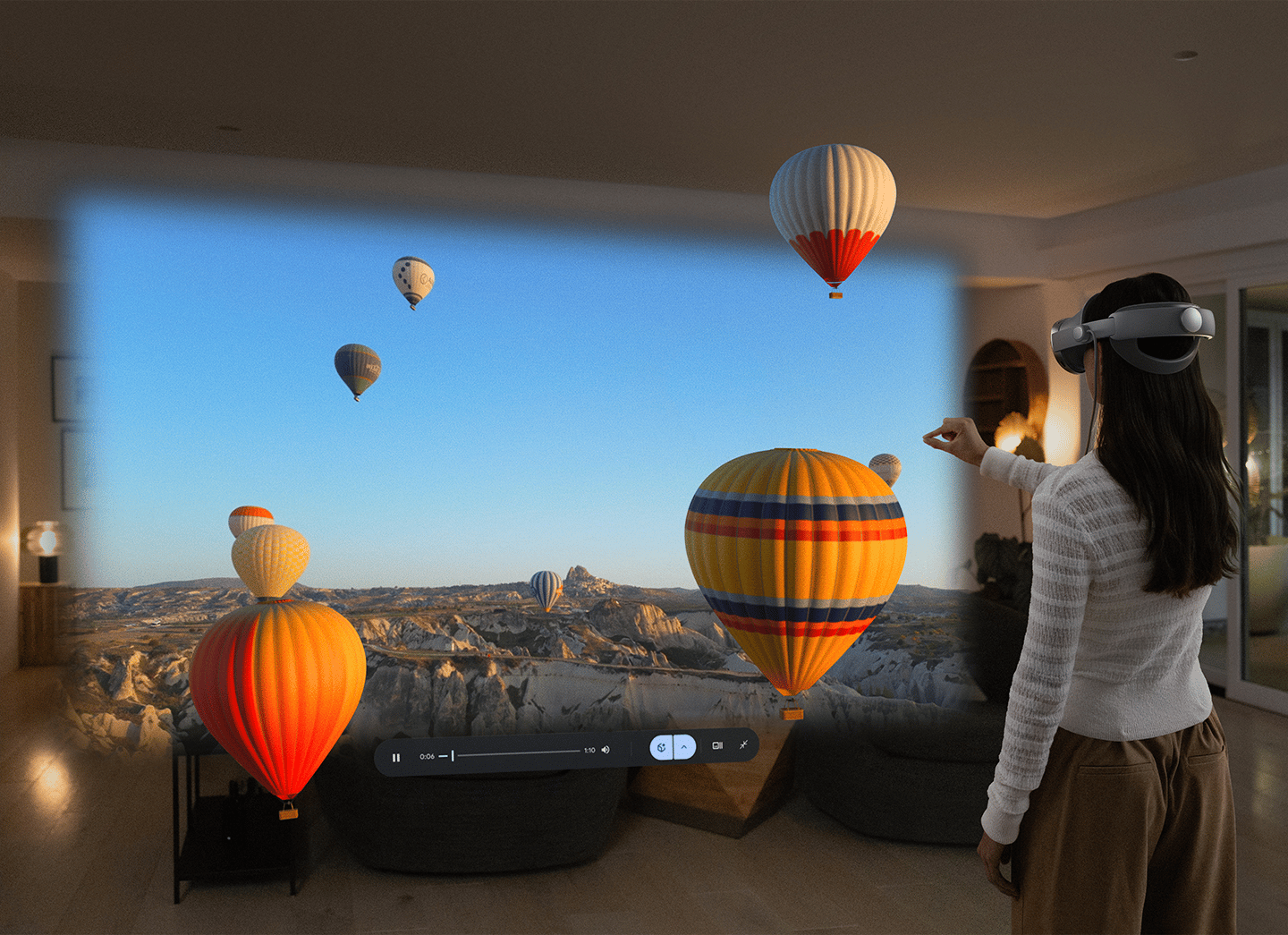- The Neural Frontier
- Posts
- OpenAI Rolls Out ChatGPT Atlas 🌐
OpenAI Rolls Out ChatGPT Atlas 🌐
Also: Google takes a quantum leap, while Amazon unveils smart glasses for its delivery drivers 🚚.

Is everyone releasing an AI browser now? Shipping season is truly no joke.
Forward thinkers, issue #130 is here! 😅
Let’s dive into the latest AI browser on the block, Google’s quantum leap, and Amazon’s new AI smart glasses.
Ready or not, let’s unpack! 📦
In a rush? Here's your quick byte:
🌐 OpenAI rolls out ChatGPT Atlas!
🦘 Google takes a quantum leap.
😎 Amazon unveils smart glasses for its delivery drivers!
🎭 AI Reimagines: Drone-level shots of nature!
🎯 Everything else you missed this week.
⚡ The Neural Frontier’s weekly spotlight: 3 AI tools making the rounds this week.

Source: OpenAI
OpenAI is launching ChatGPT Atlas, a web browser built with ChatGPT at its core, designed to rethink how users interact with the web. The browser combines your work, tools, and context with AI assistance, offering a super-assistant experience right where you browse.
Here’s what you should know:
🧠 Smarter Browsing With ChatGPT: Atlas integrates ChatGPT memory and context directly into your browsing experience. Key features include:
Browser memories: ChatGPT can remember context from websites you visit and bring it back to help complete tasks. Memories are optional, fully viewable, and deletable at any time.
Agent mode: ChatGPT can perform research, analyze information, plan events, and even book appointments directly in your browser.
Real-time context understanding: Ask complex queries like: “Find all the job postings I was looking at last week and summarize industry trends.”
Privacy controls: You can toggle page visibility so ChatGPT cannot see or remember content, or use incognito mode to keep browsing entirely private. Additionally, browser memories are private to your account and optional.
⚡ Agent Mode: Atlas allows ChatGPT to take actions on your behalf, with safeguards to protect your data:
Tasks like planning a dinner party or shopping for groceries are handled automatically.
At work, ChatGPT can open and read documents, conduct competitive research, and compile insights into briefs.
Safety measures include:
Cannot run code, download files, or install extensions
Cannot access apps or files on your device
Pauses for sensitive tasks (e.g., banking sites)
Option to run the agent in logged-out mode for maximum safety
Agent mode is currently in preview for Plus, Pro, and Business users. OpenAI notes that agent actions may occasionally make mistakes, and users should monitor activity.
🔍 Built Around You: Atlas is designed to integrate smoothly into your workflow:
Unified search: ChatGPT can answer questions, pull in interactive content, or navigate URLs in the same window.
Personalized suggestions: ChatGPT can recommend next steps based on your browsing history or activity.
Privacy-first design:
Clear individual pages or full browsing history
Turn off browser memories entirely
Control which sites ChatGPT can view
Parental controls extend across Atlas, including browser memories and agent mode, ensuring a safe experience for younger users.
🌐Availability
MacOS: Available worldwide for Free, Go, Plus, and Pro users. Beta for Business, Enterprise, and Edu users (with admin enablement).
Coming soon: Windows, iOS, and Android versions.
To get started, sign in with ChatGPT, import bookmarks, passwords, and history from your current browser.

Source: Google
Google Quantum AI has announced a major milestone: the first-ever verifiable quantum advantage running on real hardware.
Using the Willow quantum chip, researchers have successfully implemented the Quantum Echoes algorithm, achieving performance 13,000× faster than the fastest classical supercomputers.
This breakthrough marks a step toward practical, real-world applications of quantum computing in areas like medicine, materials science, and chemistry.
🧪 From Concept to Breakthrough: Quantum computing has progressed rapidly over the past six years:
2019: Google demonstrated quantum supremacy with a problem that would take classical supercomputers thousands of years.
Late 2024: The Willow chip dramatically suppressed errors, a challenge scientists had wrestled with for nearly three decades.
2025 (Today): Quantum Echoes demonstrates verifiable quantum advantage, marking the first time a quantum computer runs a repeatable algorithm with precision beyond classical capabilities.
🌀 How Quantum Echoes Works: Quantum Echoes measures system dynamics with exceptional sensitivity. The algorithm uses a four-step process on Willow’s 105-qubit array:
Forward operations: Run a carefully prepared quantum sequence.
Perturbation: Slightly alter one qubit.
Reverse operations: Reverse the sequence to observe changes.
Measurement: Capture the resulting “echo,” amplified via constructive interference, revealing how the disturbance spreads.
This technique allows precise modeling of quantum systems while retaining verifiability—the results can be repeated on comparable quantum hardware.
🔬 Real-World Applications: Quantum Echoes and Willow’s capabilities have immediate relevance for scientific discovery:
Molecular modeling: The algorithm can study molecules’ structures with unprecedented accuracy. In collaboration with UC Berkeley, two molecules (15 and 28 atoms) were analyzed, producing results consistent with traditional Nuclear Magnetic Resonance (NMR) and revealing additional structural details.
NMR enhancements: Quantum Echoes acts as a “molecular ruler,” measuring long distances in molecules and improving the resolution of NMR spectroscopy. This can accelerate drug discovery, materials science, and the design of advanced polymers and battery components.
Complex quantum systems: The algorithm can analyze magnets, black holes, and other physical systems, offering new insights into nature at a fundamental level.
“Just as telescopes and microscopes opened unseen worlds, Quantum Echoes paves the way for a ‘quantum-scope’ to explore previously unobservable phenomena.”
This breakthrough shows that quantum computing is no longer purely experimental — it can begin to drive discoveries in chemistry, biology, and advanced materials, moving closer to solving problems beyond classical reach.

Source: Amazon
Amazon announced its latest innovation for delivery operations: AI-powered smart glasses designed to give delivery drivers a hands-free workflow, reducing the need to constantly reference phones, packages, or surroundings.
The glasses provide a real-time heads-up display, allowing drivers to scan packages quickly, follow turn-by-turn walking directions, and capture proof of delivery.
They rely on AI-powered sensing and computer vision, combined with integrated cameras, to display hazards, delivery tasks, and navigation cues directly in the driver’s line of sight.
⚡ How the Glasses Work
Glasses automatically activate when a driver arrives at a delivery location.
They help locate packages in the vehicle and navigate efficiently to the delivery address.
Optimized for multi-unit apartments and complex business locations.
Paired with a controller worn on the delivery vest, featuring:
Operational controls
Swappable battery
Dedicated emergency button
Support for prescription and transitional lenses that adjust to light conditions automatically.
Amazon aims to shave time off deliveries and increase operational accuracy by providing critical information right in the driver’s field of vision.
🐾 Future Capabilities: Amazon’s roadmap for the glasses includes:
Real-time defect detection to alert drivers if a package is left at the wrong address
Pet detection and hazard awareness in yards or low-light conditions
Integration with operational systems for smarter, safer delivery workflows
The glasses are currently in North American trials with plans for wider rollout after further refinement.

Source: u/Zaicab via Reddit
The header deffo gave it away, but truly, these shots deserved to be experienced, not described.
🎯 Everything else you missed this week.

Source: Samsung
⚡ The Neural Frontier’s weekly spotlight: 3 AI tools making the rounds this week.
1. 📊 Capalyze: Capalyze is an AI-powered data collection and analysis agent that extracts information from websites, generates charts, and produces professional reports through natural language queries.
2. 🔒 Hyperlink: Hyperlink is a fully offline AI agent that searches, analyzes, and summarizes files stored locally on macOS devices without sending any data to the cloud.
3. ⚙️ Logic: Logic is an AI automation platform that converts business decision processes written in plain English into production-ready APIs for consistent execution at scale.
Wrapping up…
Agentic browsers, a quantum leap, and smart AI glasses for delivery drivers. Just another Friday, isn’t it? 😆
As always, to keep up with the latest, you know what to do: hit that Subscribe button and keep an eye on that inbox.
We’ll catch you next week on the Neural Frontier ✨.